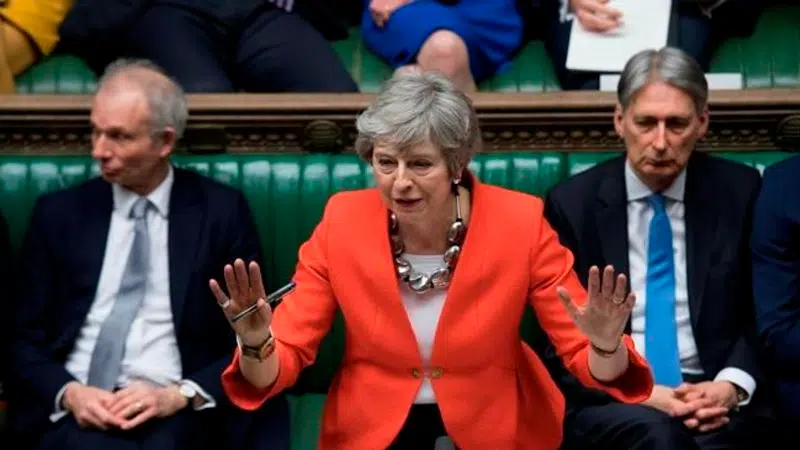
Brexit claims another political victim in UK’s Theresa May
LONDON — When Theresa May became prime minister, she had grand designs. Her premiership wouldn’t just be about taking Britain out of the European Union, it would be about fighting “the burning injustice” within the country.
But on Wednesday night, broken by Brexit like her predecessor, May effectively conceded that she won’t be able to do anything more to battle injustice, empower women, and build a more equal society.
May told lawmakers from her Conservative Party that she will move out of 10 Downing Street as soon as Brexit is delivered, leaving the messy business of building a future relationship with Europe to another leader. That paves the way for what will likely be a fierce succession battle in the Conservative Party.


